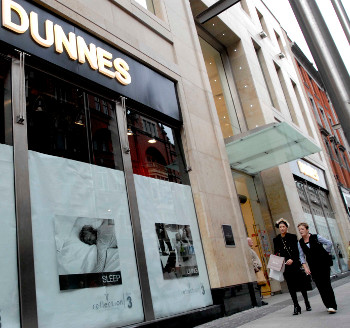Trade union launches campaign for decent work in Dunnes Stores

Mandate aims to tackle what it describes as 'the ongoing deterioration of employment standards for Dunnes workers nationally'. Meanwhile Mandate and SIPTU members in Marks & Spencer vote to reject Labour Court Recommendation
28 April 2014
Mandate trade union launched the Decency for Dunnes Workers Campaign at the unions’ Biennial Delegate Conference held yesterday (Sunday, 27th April 2014) in Killarney, Co. Kerry.
Mandate, which represents more than 4,000 workers in Dunnes Stores, said the campaign is being launched to tackle the ongoing deterioration of employment standards for Dunnes workers nationally and to bring employment conditions in line with the company’s major competitors in the retail sector.
Four key demands
Mandate members in Dunnes Stores stores have identified four key demands for the national campaign, including decent hours and earnings; job security, Fair pay; and The right to trade union representation.
Launching the campaign, Mandate Assistant General Secretary Gerry Light said: "There has been a dramatic increase in precarious work across the Irish retail sector and we have serious concerns based on feedback from our members that the employment standards in Dunnes Stores have deteriorated in recent years.
Seeking ‘banded hour contracts’
He added: "There are now 147,000 people in the Irish economy classified as ‘underemployed’, meaning they cannot get enough hours of work. Many employers, particularly retail employers, are using the allocation of hours as a method of control and discipline over their workers and they do this by issuing low and zero hour contracts.
"Workers in Dunnes Stores are seeking the right to ‘banded hour contracts’ similar to their counterparts in Tesco, Supervalu and Penneys. This would give Dunnes workers a level of security over their hours and earnings."
The union also argues that despite a national agreement being in place since 1996, Dunnes management has refused to implement the terms of the agreement meaning workers have been denied their right to representation, both individually and collectively. Mandate said it wants Dunnes to implement the terms of the 1996 agreement with immediate effect.
The union intends to post updates on the Dunnes Stores campaign at www.dunnesworkers.com.
Marks & Spencer Labour Court Recommendation rejected
Meanwhile last Friday (25 April) Mandate and SIPTU members in Marks & Spencer voted to reject a Labour Court Recommendation by a margin of 84% to 16%.
Marks & Spencer employs approximately 2,300 workers in 17 stores nationally.
The recommendation from the Labour Court largely backed plans by Marks & Spencer management for cost cutting measures which Mandate claimed "would seriously deteriorate the living standards for workers at the company".
Gerry Light said that under the company’s plans, some workers would be expected to take a cut of more than 20% in their terms and conditions of employment.
Mandate has now written to the company to invite them back into negotiations, with Light adding: "Any attempts to push through cost saving proposals without agreement will be resisted in the strongest possible way," he concluded.
Marks & Spencer response
However Marks & Spencer said it "fully accepted" the Labour Court’s findings and is subsequently "considering [its] options".
A spokesperson told ShelfLife: "We are very disappointed with how this is progressing and with the outcome of the ballot. We entered into the Labour Court process agreeing to accept the Labour Court’s independent recommendations and while the recommendations did not deliver all of the savings we required, we fully accepted their findings. We are now considering our options going forward."



 Print
Print







Fans 0
Followers